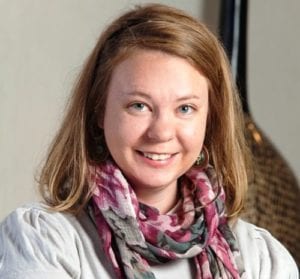In a move to drive sustainability in the engineering industry, Consulting Engineers of South Africa (CESA) is looking into introducing a Sustainability Guideline with a view to guiding and assisting its member companies with sustainability monitoring and reporting.
This bold step is a pro-active effort to ensure that sustainability and its implications and opportunities are embedded within firms, specifically within the consulting engineering fraternity. While these guidelines are currently in draft format, they have kick-started the discussion around sustainability. GIBB Sustainability Manager, Karien Erasmus, says GIBB welcomes the proposed CESA sustainability reporting initiative. “Sustainability in design engineering is undoubtedly the way of the future. By reporting on sustainability, engineering firms can see where they are making a material impact. “It must be noted that reporting is not merely about the action of compiling a report or a tickbox tool. Rather, it is a structured medium to guide firms on sustainability – how to define it on a firm-by-firm level and how to understand and manage the identified material aspects. A key aspect of sustainability relates to materiality, which means what is most important to the sustainability of your company and your activities, rather than a broad-brush approach,” says Erasmus. GIBB understands the impact the engineering industry has on its communities and the environment in which it operates. In addition, it is aware of its role as a major job and employment creation driver in South Africa. In this regard GIBB has developed a practical and informative sustainability model, which could be applied on a project level. The purpose of this model is to highlight the various tasks and outcomes that should be considered with regards to sustainability from an early project stage. Sustainability in the engineering industry, says Erasmus, is all about achieving balance. “There are a number of key issues on South Africa’s development agenda that need to be addressed. Sustainability is not just about environmental and resource conservation. The social component is becoming increasingly important with regards to community development, social upliftment and skills transfer.“The fact is, in order to contribute effectively to South Africa’s National Development Plan goals and objectives and achieve sustainability on a national level we need to, amongst other things, get electricity and water to people. We need to ensure that education and jobs are created. Sustainability is not just about conservation, it is about allowing growth, but doing so in a responsible and future-considering manner. The engineering industry needs to understand the impact it makes with every project it undertakes. In addition, it needs to establish how it can contribute to the developmental agenda through the work it does – and therein lies the balance,” says Erasmus.
Many of the projects GIBB is currently involved in fit the sustainability bill. “One of our current projects relates to renewable energy and the link thereof to grassroots skills development and sustained job creation, which are key considerations at the moment, especially in a country such as South Africa where coal resources are running low,” says Erasmus. Legislatively speaking, says Erasmus, South Africa will be rolling out carbon tax in 2015. “This will have a major impact on the transport and logistics sector. It will also impact the way we do business. If we do not take carbon emissions into consideration and look at international best practice, the cost of business will continue to rise.” Africa is a dynamic business space, one in which GIBB sees major opportunities. Erasmus says a number of international best practice policies govern the way GIBB does business in Africa. “There are several externally developed charters and sets of principles such as the Equator Principles (2007) and International Finance Corporation (IFC) Best Practice principles that will become entrenched in the next 10 to 15 years. So, it makes good business sense to align ourselves with them now.” “Ultimately, the Earth cannot sustain the way we’re developing at the moment. It’s a bottom line fact. We have to find ways to develop sustainably. We need to acknowledge our past in South Africa and the way it has impacted our development. And we need to find ways to give everyone access to equal services and an improved quality of life. This means we need the development, but we need to take cognisance of the way we develop,” says Erasmus.






